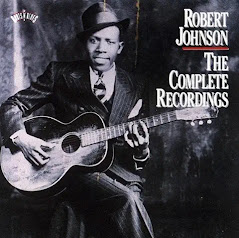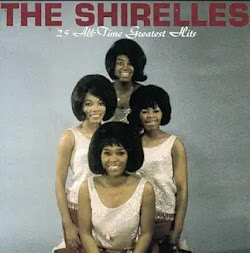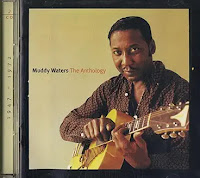 |
| Billie Eilish |
You don't need me to tell you how f*cked up 2024 was. I'll try to identify some silver linings.
Executive Summary:
Music: Pop music good, if not exactly in my comfort zone. Jazz, Blues, and Oldies wonderful. Weirdos thriving. (More to come on that).
Music/Personal: No longer striving for competence on guitar.
Personal: Retired and grandfather of two. Getting old fast.
Politics: Everybody knows the war is over, everybody knows the bad guys won. Fascism is cool again, apparently. The young folks - men, mostly - let us down.
Humans:
Best:
- Jimmy Carter
- Adam Kinzinger
- Liz Cheney
- Many, many others who, in my current state, I just can't bring to mind. Feel free to write in some names.
Worst:
The ever-expanding "Usual Suspects", as I called them last year, make a repeat appearance here. I'll only make special mention of their Rookie of the Year, Nancy Mace, whose popularity confirms the existence of a new mini-industry busily producing Awful Women, like veterans Elise Stefanik, Nicole Malliotakis, Marsha Blackburn, Kristi Noem, and others. However, I will risk being accused of sexism by saying they'll never quite match the production of Awful Men. But keep up the bad work gals!
Best Books:
During this, my first year of retirement, my ambition was to "just lie down on the damn couch and read a f*cking book or two".
And I did! I read all of the following books with great enthusiasm:
- A Distant Mirror by Barbara Tuchman: A remarkable history of Europe (mostly France) in the 14th century.
- The Spy and the Traitor by Ben MacIntyre: A true-life spy story and a great one.
- Kitchen Confidential by Anthony Bourdain: A true-life restaurant story, and a very entertaining one.
- Consciousness Explained by Daniel Dennett: What's an "I", anyway? Mr. Dennett tries to explain.
- Karla's Choice by Ken Hardaway: John le Carre's son admirably continues the George Smiley saga.
The following are part of my World History Project, which has now reached the end of the American Civil War. I read a lot more than these five, but these are the best of the lot:
- The Good Lord Bird by James McBride: A hilarious and tragic retelling of the John Brown story.
- The Fiery Trial: Abraham Lincoln and American Slavery by Eric Foner: Notorious flip-flopper's views on slavery.
- Battle Cry of Freedom by James McPherson: The entire Civil War, miraculously, in a single volume.
- Team of Rivals by Doris Kearns Goodwin: Lincoln and his Cabinet. Possibly the best history book I've ever read.
- Lincoln by Gore Vidal: Vidal could be pompous in interviews and lectures but he did work his ass off to get his historical fiction right. I read this alongside Team of Rvals, and was in awe of his grasp of the details. And, like Burr, it's funny too.
I did manage to get out and see a few movies, but the only one worth mentioning here is A Complete Unknown. What it may be lacking in specific details, it more than makes up for with Timothee Chalamet's performance (and performances). Ed Norton is also great as Pete Seeger. The music is pretty great, too.
Best TV:
- Somebody Somewhere
- I May Destroy You
- Insecure
- Bodkin
Best Concerts:
Still none. I'm still waiting for one that's worth time/trouble/$.
Music Awards:
Most Work (But Worth it):
Most Work (And Possibly Not Worth It):
Most Surprising (and Not Necessarily in a Good Way):
Best Nostalgia:
Best Artist:
Daniel Nigro, producer of both Olivia Rodrigo and Chappell Roan
Best Albums of My Year:
- Billie Eilish: Where Do We Go When We Fall Asleep? - The key to this young lady, and what eventually wore me down - is not the loopy sound effects (that's her brother). It's the songwriting that stays consistent from beginning to the very end.
- Cannonball Adderley: Somethin' Else - NOT "worse" than Billie. Just a slower burn.
- The Quintet: Hot House: The Complete Jazz and Massey Hall Recordings - Ditto.
- Jimi Hendrix: The Cry of Love - Not a masterpiece. Just a very consistent (that again!) yet relaxed set of tunes with great guitar playing.
- Chappell Roan: The Rise and Fall of a Midwestern Princess - I'll get to this at another time, but in short, she edges out Olivia by the sheer volume of hooks and emotion she brings to the table. Geez!
- Olivia Rodriguez: Guts - A smart young woman. NOT worse than Chappell. Just a bit more professional sounding, which is both a plus and a minus.
- The Chills: Brave Words - Another one for a later time. RIP Martin Phillips.
- The Feelies: The Good Earth - "Only" rock n' roll and I love it.
- John Cale: Paris 1919 - Professed weirdo plays it straight with lovely results.
- Low: I Could Live in Hope - Just how depressed can you get? Find out here and come back alive.
Best Compilations:
- Muddy Waters: Anthology
- Robert Johnson: The Complete Recordings
- The Shirelles: 25 All-Time Greatest Hits
- Fats Domino: My Blue Heaven, The Best of...
- Sir Warrior etc: Heavy on the Highlife!
The Album I Listened To Most but Had the Least to Say About It Due to Density (Mine, not the music's.):
Some of the best songs I heard this year can be found here.
Oh, and Mrs. Jaybee's Favorites:
- Beyonce: Cowboy Carter
- Billie Eilish: Where Do We Go When We Fall Asleep?
- Gorillaz: Cracker Island
- Bill Withers: The Ultimate Collection
- Amy Winehouse: Back to Black
Conclusions:
Now with two granddaughters, I'm slowly beginning to understand what life is all about. I hope I'm not too late.
Pop continues to grow - sometimes away from me. That's okay. I don't have to be in the middle of it. As long as I can find some electric guitar music - now a small sub-section of pop - I'll be okay.
Jazz and blues (and oldies, and older pop) will always be there to fill the gap. I was hoping to keep you informed about new stuff, but if old stuff is new to both of us what's wrong with that?
And finally, I have come to realize that most of my countrymen think a dictator is someone who is NOT popular. A little more education might have helped. One can only hope the bad guys form a circular firing squad.
Happy New Year!


























